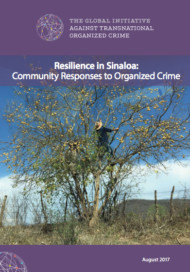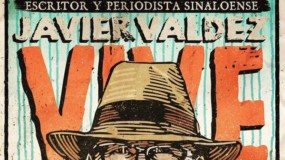Mexico’s presidential election opens a new chapter in democracy and security against a backdrop of pervasive violence.
Mexicans have voted to change the course of their history. The results of the 1 July election – a landslide victory for Andrés Manuel López Obrador – overwhelmingly rejected the country’s status quo.
In Mexico’s largest democratic exercise to date, in which over 3 400 political posts were contested, organized-crime groups threatened, however, to influence the voting in some municipalities. But, in the end, a combination of long-standing national insecurity, inequality and corruption provided the momentum to shift the electoral balance in favour of leftist coalition Morena (Movimiento de Regeneración Nacional – ‘national regeneration movement’), headed by López Obrador.
Yet this election also stands out for being the most violent in Mexico’s democratic history. Since campaigning began in September 2017, more than 140 murders connected to political activities have been recorded, according to data from risk analysts Etellekt. Journalists, mayors and over 50 candidates who did not make it to Sunday’s ballot were among the dead. And more than 600 other cases of politically related aggression were registered, including kidnappings, extortion, threats and intimidation. This is set against a backdrop of escalating violence nationwide, in which May 2018 was the most violent month on record for over 20 years.
Despite the violent campaign, turnout was strong, with over 60% of voters braving long distances and many hours of waiting, as well as risk to their own security.
Although the voting process itself was generally peaceful across the country, it was marred by a number of violent incidents. In the northern municipality of Cosalá – which lies in the home territory of the Sinaloa Cartel, an organized-crime syndicate – armed groups threatened people at the polling stations, ordering them to vote for the candidate from the ruling party, the PRI (Partido Revolucionario Institucional), and not the opposition. Two journalists were detained for hours and threatened with guns. As the election results showed, in Sinaloa, where these armed groups had been intimidating voters, the PRI won. In contrast, Morena swept 90% of the voting districts elsewhere.
Mexico’s electoral campaigns and organized crime
Violence is not new in Mexican elections. Yet, as demonstrated by the Electoral Risk Atlas, the levels seen in this election cycle were unprecedented. Violence is the primary tool wielded by Mexico’s criminal groups to exert influence over the appointment of political candidates and consolidate their territorial control. The widespread violence, and the atmosphere of fear and intimidation that it has created, has shaped the electoral landscape in a number of ways.
As the New York Times has reported, many political candidates chose to abandon their campaigns out of fear for their safety and that of their families. Others were unable to safely travel to campaign in their communities. In some cases, criminal groups actively promoted their own preferred candidates, blurring the line between authorities and criminals.
The democratic process in Mexico – barely 20 years in the making – has been further threatened by the suppression of freedom of speech and political debate, as demonstrated by the dangers faced by the Mexican press. Human-rights NGO Article 19 has documented more than 200 attacks on journalists in 2018 alone, 60 of which were directly related to the electoral process; six journalists were assassinated. Red Rompe el Miedo (a web platform created by human-rights defenders and journalists) has registered 141 cases of assault, 52 on election day alone, all seeking to intimidate journalists who are determined to speak out.
These problems have worsened in the latest election cycle amid large-scale shifts in Mexico’s criminal economy. Long-standing strategies to counter organized crime in Mexico have favoured the targeting of kingpins and the decapitation of large cartels. This caused criminal groups to splinter into smaller rival factions, which control smaller areas of territory. Operating within smaller, more localised territory has forced these new groups to find ways to exert control over local governance and political figures.
The political landscape has also become more fragmented. In recent years, Mexico’s incipient democracy has shifted from a one-party state into a pluralistic system, where greater competition between parties has seen the reins of power regularly changing hands. Several scholars have noted how this shift has interrupted long-established ties between organized crime and corrupt officials, increasing conflict between the state and criminal interests, and resulting in pervasive violence.
The increase in the supply of drugs due to changes in trafficking routes to the border with the US has also brought illicit money into local economies and compromised the position of municipal and state authorities. At the same time, pluralization has brought with it a degree of decentralization of the state’s power to the local-authority level.
Criminal groups therefore increasingly need to compromise these local authorities, which goes some way to explaining why these elections became a battleground in a very literal sense. However, it must be stressed that, since Mexico has experienced a fragmentation of both the political and criminal landscapes, there is no single or simple explanation that can be used to categorize the recent violence. Although violence has been widespread, each case is a response to different, localized factors.
López Obrador and his promises of change
In this environment of insecurity, Mexicans have turned to López Obrador as a symbol of discontent with the security policies of the last 12 years. In 2006, he lost the presidential election by a narrow margin to right-wing leader Felipe Calderón amid massive protests. On assuming office, Calderón immediately launched a ‘war on drugs’ through a militarized approach to combating organized crime. In 2012, López Obrador once again lost out to Calderón’s successor, Enrique Peña Nieto, amid accusations of fraud and further civil unrest. A case of third time lucky, López Obrador’s victory has finally been sealed, and received peacefully by opponents.
Mexico needs change, and López Obrador was the only candidate to offer a radically different perspective on security from the formulas of previous governments. During his campaign, he called for an amnesty on certain drug-related crimes as a means to pacify the country, although this was criticized and labelled by some as populist, and his team have not explained in detail how such a measure would work in practice. As a candidate, he also promised to repeal Mexico’s Internal Security Law, which serves to normalize deployment of the military in the fight against organized crime. Recently passed by the previous administration, the controversial legislation has drawn criticism from civil society and international organizations.
The UN human-rights representative in Mexico, Jan Jarab, expressed his concern over the Internal Security Law in a missive to the Senate, saying that it would ‘reduce the incentive to professionalize civil institutions, and would favor the consolidation of the military approach to security, which has failed to reduce violence and has increased the number of human rights violations’.
According to his new ‘national project’, López Obrador’s security strategy promotes development as the key to prevention. For the president-elect, providing young people with opportunities for education and decent work seeks to replace drug trafficking as an economic option. Other policies focus on the professionalization of state ministries, capacity-building of agencies and a full-frontal attack on corruption and impunity, issues that were central to the campaign ticket that led him to the presidency.
In his victory speech, López Obrador promised a phase of social reconciliation. Speaking of a new chapter of peace and justice in the history of Mexico, he promised to replace the ‘fight against insecurity and violence’ with a fight against its causes – ‘inequality and poverty’. Although known to be intolerant of his critics, López Obrador has promised to design his security policy by drawing from a broad coalition of opinions.
Olga Sánchez, an ex-judge of the Mexican Supreme Court, has been invited to head the Department of the Interior by López Obrador, who also promised to form a cabinet with 50% female representation – a first for the country. Sánchez has vowed to reduce the military presence on the streets. She also promised to decriminalize recreational use of marijuana, which will certainly challenge the current global prohibitive policies on drugs, and lead no doubt to a new chapter in Mexico–US relations.
The new president’s strategy promises a dramatic departure from the country’s longstanding militarized approach to its societal problems. The electorate are hopeful, but the challenge will be immense.
México: nuevo capítulo en seguridad y democracia
Los mexicanos han votado para cambiar el rumbo de su historia. Los resultados de las elecciones más grandes que haya vivido el país, han sido contundentes en su rechazo al status-quo. Más de 3400 puestos de elección popular estuvieron en juego. Y los grupos del crimen organizado amenazaron con decidir por la gente en algunos municipios. Sin embargo, a nivel nacional, la inseguridad, la desigualdad y la corrupción, finalmente tuvieron el peso que movió la balanza electoral favoreciendo mayormente a la coalición izquierdista MORENA (Movimiento de Regeneración Nacional), encabezada por Andrés Manuel López Obrador.
Pero esta elección fue extraordinaria también por ser la más violenta en la vida democrática de México. Desde que empezaron las campañas en septiembre pasado a la fecha, se han registrado más de 140 asesinatos relacionados a estas actividades políticas, 3 muertes en promedio cada semana de acuerdo a datos de la consultora Etellekt. Entre las víctimas hay periodistas, alcaldes y más de 50 candidatos que ya no llegaron a la boleta del domingo. Hay registro de más de 600 agresiones relacionadas al proceso, incluyendo secuestros, extorsiones, amenazas e intimidaciones. Esto en medio de la creciente violencia a nivel nacional que reporta a Mayo 2018 como el mes más violento registrado en los últimos 20 años.
No obstante la violenta campaña, una mayoría abrumadora acudió a las casillas. Llegaron a las urnas Más del 60% de votantes registrados, algunos recorrieron grandes distancias, esperaron filas de horas o pusieron en riesgo su propia seguridad. MORENA y López Obrador llegaron al triunfo con más del 50% de los sufragios, ganando también la Ciudad de México y la mayoría en el Congreso.
Y aunque generalmente la jornada electoral fué pacífica a lo largo del país, se registraron algunos incidentes violentos. El mismo día de la elección, en el municipio norteño de Cosalá, epicentro del Cártel de Sinaloa, grupos armados se presentaron en las casillas exigiendo a la gente que no votara por la oposición, sino por el partido en el poder, el PRI (Partido Revolucionario Institucional). También en Cosalá, dos periodistas que cubrían la elección, fueron retenidos por horas y amenazados con armas de fuego. Los resultados finales en el estado de Sinaloa, daban la victoria al PRI en los distritos donde estos grupos intimidaron a los votantes. En contraste, MORENA ganó el 90% del total de los distritos en todo México.
Campañas electorales y crimen organizado
A pesar de que las manifestaciones de violencia no son nuevas en los procesos electorales de México, como indica el Atlas de Riesgo Electoral, este proceso presentó niveles sin precedentes. La violencia ha sido usada por el crimen organizado para influir en el nombramiento de algunos candidatos, también para ejercer la censura sobre sus actividades y consolidar su control territorial. Esta violencia generalizada y el clima de miedo e intimidación que provoca, ha moldeado el panorama electoral de distintas maneras.
Como se consta en el New York Times y otros medios nacionales, algunos candidatos decidieron abandonar la contienda como medida de seguridad para ellos y sus familias. Algunos se vieron imposibilitados a recorrer con seguridad sus comunidades e incluso grupos de la delincuencia organizada promovieron activamente a sus candidatos preferidos, borrando la línea entre autoridades y criminales.
El proceso democrático también ha sido lastimado por la falta de libertad de expresión y los impedimentos para el debate político, manifiestos en los peligros que enfrenta la prensa mexicana. La organización Artículo 19 reporta que sólo en 2018 se han detectado más de 200 agresiones a periodistas, 60 relacionadas directamente al proceso electoral y entre ellas, por lo menos 6 asesinatos. Por su parte, la Red Rompe el Miedo (plataforma online creada por defensores de los derechos humanos y periodistas para asesorar en la cobertura segura de procesos electorales) tiene registrados 141 casos de agresiones, 52 de ellas ocurridas el día de la elección y que van desde llamadas intimidatorias, lesiones, robo de equipo, bloqueo informativo hasta campañas de desprestigio que buscan amedrentar a aquellos periodistas que no están dispuestos a callar.
El problema de las elecciones es reflejo también de la crisis de violencia que atraviesa el país. Las estrategias de seguridad actuales en México han apostado por decapitar carteles, logrando la detención de algunos grandes líderes, lo que ha provocado la atomización de los grupos criminales en facciones rivales más pequeñas con control en áreas más reducidas. La operación en estos territorios localizados ha incrementado la necesidad de los nuevos grupos de influir sobre las autoridades y figuras políticas locales.
Del mismo modo, el panorama politico se ha fragmentado. En los últimos años la incipiente democracia mexicana ha experimentado la alternancia, moviéndose lentamente hacia un sistema más plural con mayor competencia entre partidos. Varios académicos destacan que estos reacomodos en el poder legítimo han roto viejos acuerdos entre grupos del crimen organizado y autoridades corruptas, incrementando el conflicto entre el estado y los intereses criminales, lo que se ha traducido en violencia. El aumento en la oferta de droga en algunos mercados, debido a los cambios en las rutas de tráfico de droga hacia la frontera con Estados Unidos, ha inyectado también dinero ilícito en economías locales y vulnerado la posición de autoridades municipales y estatales.
Visto desde la creciente necesidad de los grupos criminales de comprometer a las autoridades locales, se explica de alguna manera por qué esta elección se convirtió literalmente en un campo de batalla. Sin embargo, debemos destacar que, considerando que esta fragmentación afecta tanto al panorama político como criminal, no hay una explicación única y simple para entender la reciente escalada de violencia. Aunque ésta se ha presentado de forma generalizada, cada caso responde a factores distintos y no es exclusiva de ningún partido o grupo criminal en específico.
López Obrador y sus promesas de cambio
En este contexto de inseguridad, los mexicanos vieron a López Obrador como un símbolo del descontento con las políticas de los últimos 12 años. En 2006, el hoy candidato ganador perdió por un apretado margen la elección contra el candidato de derecha Felipe Calderón (2006-2012) en medio de fuertes protestas. Tan pronto como ascendió al poder, Calderón puso en marcha la ‘guerra contra las drogas’, un enfoque militarizado en el combate al crimen organizado que ha continuado en el periodo de Enrique Peña Nieto, su sucesor. En 2012, López Obrador perdió también contra Peña Nieto, el presidente actual, en medio de acusaciones de fraude y más protestas masivas. Pero la tercera es la vencida, y la última victoria de López Obrador ha sido recibida pacíficamente por sus contrincantes quienes salieron rápidamente a reconocer su derrota.
López Obrador fue el único candidato que ofreció en el su discurso sobre seguridad una perspectiva diferente a las fórmulas de los gobiernos anteriores. Durante su campaña, López Obrador mencionó la amnistía como estrategia para pacificar al país. Su medida fue tachada de populista y ampliamente criticada por sus detractores, y su equipo todavía no ha aportado detalles sobre lo que esta amnistía significaría en la práctica. El candidato ganador también prometió echar atrás la llamada Ley de Seguridad Interior, que normaliza las funciones del ejército en la lucha contra el crimen organizado. Recientemente aprobada por la administración actual, dicha ley generó gran controversia y fuertes críticas de la sociedad civil y organismos internacionales.
De acuerdo a su proyecto de nación la estrategia de seguridad de López Obrador impulsa el desarrollo como eje de prevención del crimen. Brindando a los jóvenes oportunidades de educación y trabajo honesto busca sustituir al narcotráfico como opción económica. Otros ejes se enfocan en la profesionalización de los ministerios públicos, la capacitación constante de los elementos, la creación de un mando único para estandarizar procedimientos y el ataque frontal a la corrupción e impunidad, tema central en la plataforma que lo llevó a la presidencia.
En su discurso de la victoria, López Obrador también prometió un período de reconciliación social después de las campañas políticas. Habló de un nuevo capítulo de paz y justicia en la historia de México, reemplazando la ‘guerra contra la inseguridad’ con una guerra contra sus causas: ‘la desigualdad y la pobreza’. Aunque es conocido por atacar duramente a sus críticos, López Obrador promete el diseño de una política de seguridad considerando todas las voces.
Su plan de seguridad aún no parece muy detallado, pero puede ser un cambio radical que dejaría atrás el enfoque de las políticas militarizadas. Olga Sáchez, ex minsitra de la Suprema Corte de Justicia de la Nación, ha sido nombrada por López Obrador como próxima Secretaria de Gobierno en un gabinete que por primera vez tendrá 50% de representación de mujeres. Sánchez, en sus primeras declaraciones después de la victoria del domingo, prometió reducir la presencia militar en las calles. Y prometió también despenalizar el uso recreativo de la marihuana, desafiando las actuales política prohibitivas a nivel global y abriendo además un nuevo capítulo en las relaciones bilaterales Estados Unidos-México.



